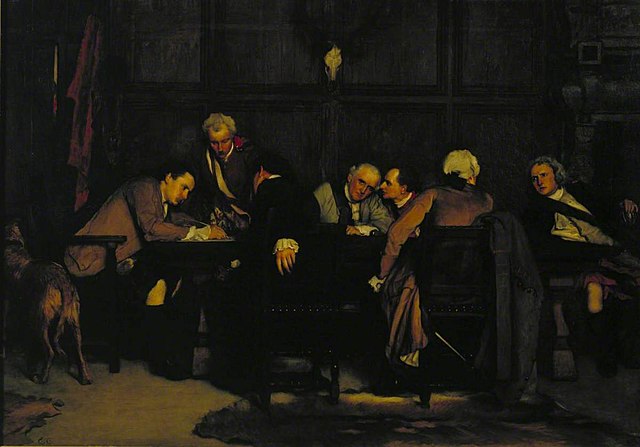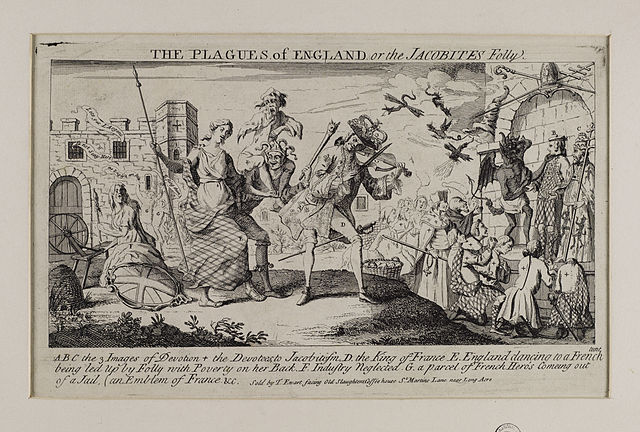After the final rebellion in 1745, England sought to control Scotland and quell any future rebellious or seditious activities. The Duke of Cumberland wrote to Lord Albemarle in 1746 after he was appointed Commander in Chief of English forces in Scotland. The Duke wrote, “If the Rebells [sic] should reassemble to such a head, that you may think it is necessary to march the whole or any part of the troops under your command, you will immediately do it.” English control of Scotland was imminent and those who were found to be Jacobite supporters were sent to prison or worse. Although the rebellions had been put down, the English were still concerned about future attacks and reprisals as the Duke wrote, “As this country is in so unsteady a situation, you will recruit the army under your command with all possible expedition & keep the whole in a readiness to take the field at a day’s warning.” Scotland was considered a precarious situation still in July of 1746.
After Culloden, proposed laws were even drawn up by the English to control Scotland further. In a sketch of potential regulations, the English proposed to ban the wearing of the tartan by highland clans as it was their “uniform” as well as Catholic habits. The law proposed, “The abolishing the habit after a proper time, will be of infinite use but should they pretend that this mountainous country requires their habit (which I am not at all convinced of) then the use of tartan or plaid should be particularly forbid, as it is what makes their uniform.” Various laws and sanctions were considered in order to bring Scotland under control easily and to leave a lasting impression on anyone who attempted rebellion in future.

As historian Allan I. MacInnes asserted regarding the effects of post-1745 Scotland, “In the process, a political culture of Scottish Jacobitism can be sustained in terms of its confessional and intellectual development, its organizational structure and its commercial and social networking.” Jacobitism in Scotland became a part of the national identity as it permeated political culture for over six decades from 1688 to 1745/1746. While some historians and scholars may argue that Jacobitism was solely a cause for the Stuart kings, others, like Allan I. MacInnes, assert that Jacobitism was a cause but also a long lasting political movement that took many different forms in the Scottish political and social landscapes. It is undeniable that both supporters and non-supporters of the Jacobites directly effected multiple facets of life in Scotland; politically, socially, and economically. After 1745, many supporters in Scotland did not simply abandon the cause but transformed it into a movement towards Scottish independence and an increased support of anti-union sentiments.

While the Jacobite Rebellions may have started solely as a way to reinstate the Stuart line on the English throne, Jacobitism in Scotland established a new political atmosphere that encouraged participation, discourse, and paved the way for new political philosophies and thinking. Scotland in the late 18th century was on its way to industrialization, with political influence of independence and self-rule ignited by the French Revolution. Anti-union sentiments were prominent, much like those held by many Jacobite supporters. As historian Christopher Whatley wrote in his book Scottish Society, 1707-1830: Beyond Jacobitism, Towards Industrialisation, “The period 1792-97 however was of considerable longer-term significance for class relations in Scotland. The seeds of political radicalism had been sown among the working classes.” The late 18th century continued to see Scottish support of political radicalism towards independence and a want for freedom of their union with England. Although the Jacobites disbanded formally and a Stuart was never placed on the English throne, the spirit that culminated in Scottish national identity and independence did not disappear. Many scholars and political commentators today refer to Scottish independence, established in 2014, as vengeance for the wrongs imparted on them 307 years prior by the Act of Union.
